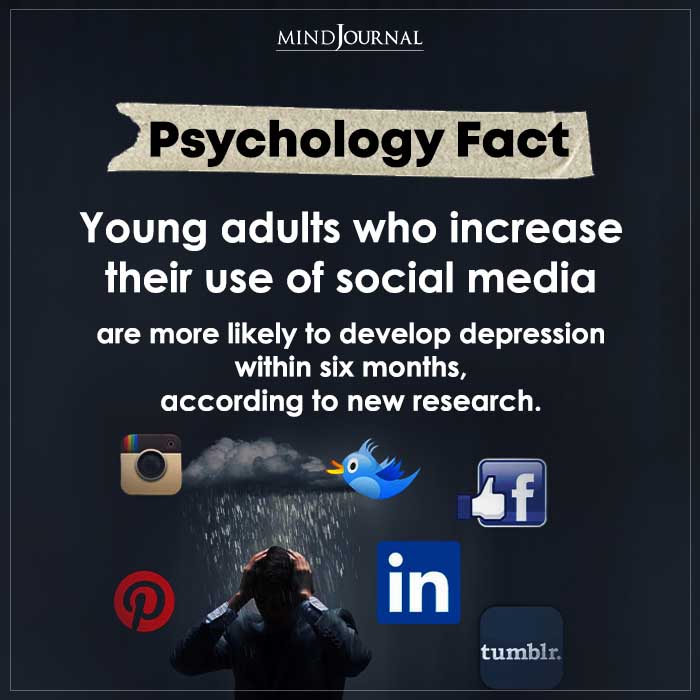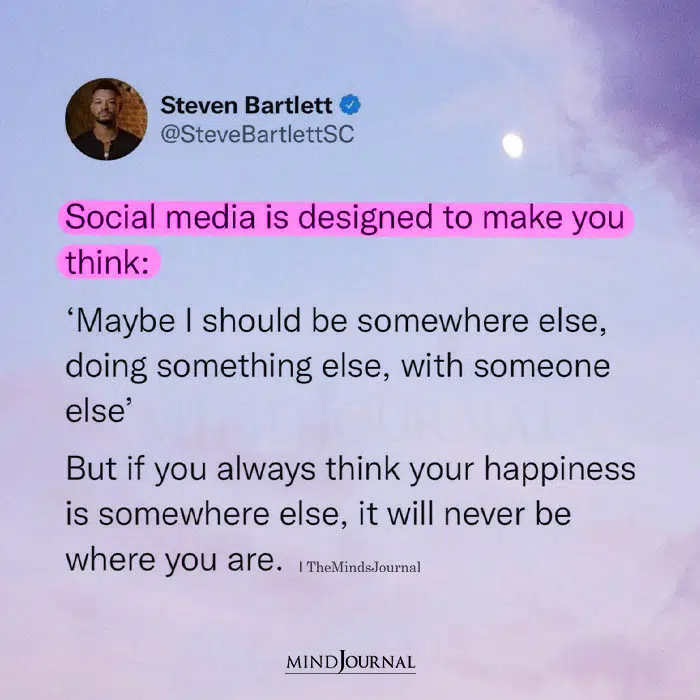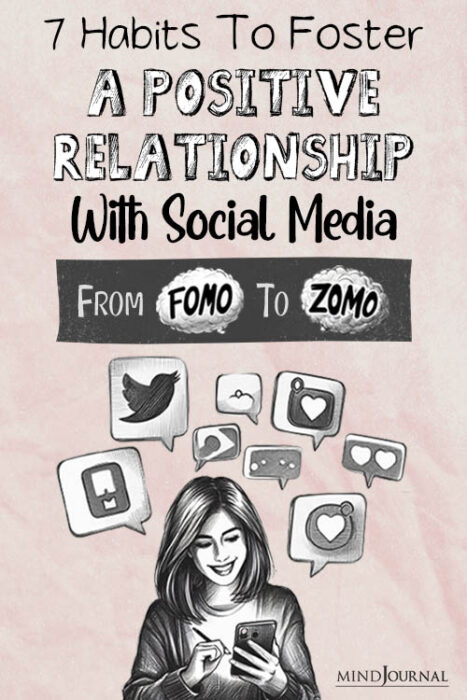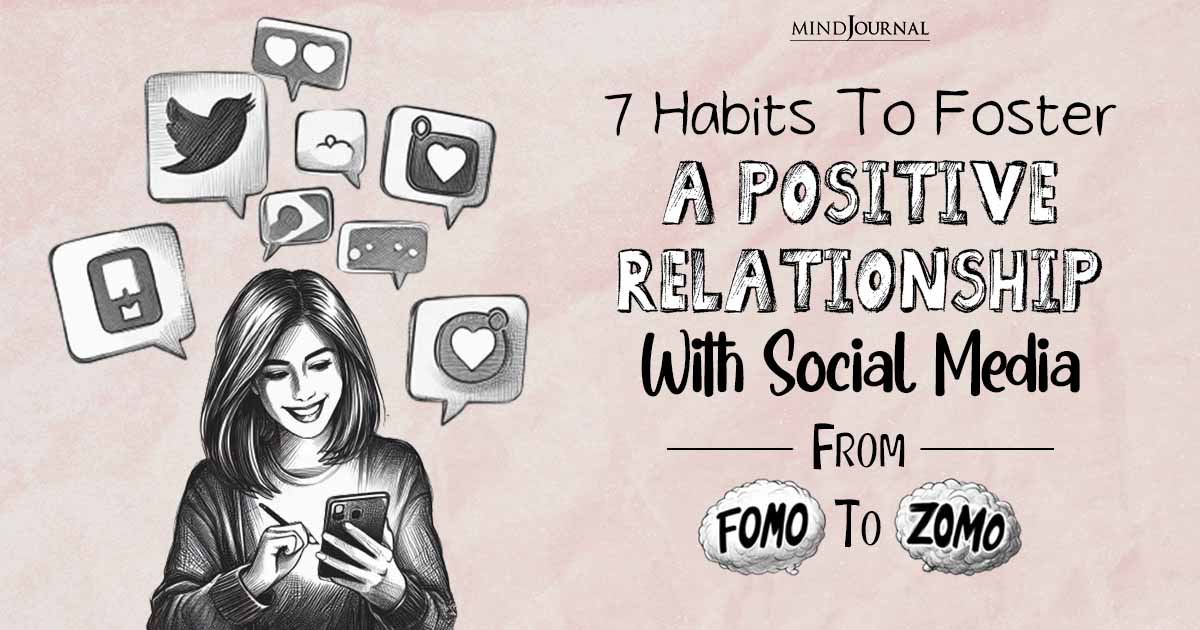We all know that it’s hard to resist the allure of scrolling through feeds, liking posts, and staying connected in this digital age. But let’s face it, sometimes our relationship with social media can get a bit complicated. It’s like a rollercoaster ride with its ups and downs, and can leave you feeling both exhilarated and emotionally drained.
If you’ve ever found yourself questioning whether you’re spending too much time doom scrolling or feeling overwhelmed by the constant barrage of information, then you’ve come to the right place.
In this article, we’re going to explore seven habits that will help you build a healthy relationship with social media, and why healthy social media use can be really good for you in the long run.
Related: Social Media Sabbatical: 6 Ways To Cleanse And Detox From Social Media
7 Habits That Can Help You Build A Healthy Relationship With Social Media
1. Don’t check your social media first thing in the morning.
Does this seem familiar to you? You open your eyes in the morning, still feeling groggy, and the very first thing you do is grab your phone and scroll through your social media. We’ve all been there, done that before, but I’ve got something to say to you.
The first one you should be greeting in the morning is yourself, not your social media feeds; focus on real life, not the virtual one. When you wake up in the morning, say to yourself that you won’t look at your phone, the moment you snooze your alarm.
Instead, make a cup of coffee for yourself, do some stretches or simply stand in your balcony and enjoy some sunshine. Once you have done all this, and you’re fully awake, then maybe log in and see what’s happening online. After all, it’s better to kick off your day on your terms instead of getting sucked into the internet right away.

2. Shut off or limit your notifications.
This is one of the best things you can do if you are trying to build a healthy relationship with social media. Unlock your phone right now, go to Settings, and turn off all your notifications related to social media. Trust me, you will feel the difference in just a few hours, and I am speaking from personal experience!
You need to be honest with yourself, do you truly need those constant alerts? Do you really need to reminded about every little thing everyone else is doing their personal lives?
All they do is distract you and lure you into opening the app. Switching off notifications not only feels liberating but it’ll also help you be more productive and efficient when it comes to your daily tasks.
3. Stay away from the comparison game.
Looking to practice healthy social media use? Remember this. Take a quick peek at your social media accounts. Now, be honest with yourself: do those carefully curated posts accurately represent your real life? Yeah, I didn’t think so. Social media is like a highlight reel of other people’s best times.
Deep down inside you very well know that that’s not the full story. But still, you compare yourself with them and constantly think, “Why isn’t my life exciting like theirs?” or “Why am I sitting at home, while everyone is traveling all over the world?”
Let’s be honest, nobody shares their low moments or failures online. Smy friend, it’s time to stop comparing yourself to those seemingly flawless online personas.
Remember, you can never know the full story behind those carefully filtered snapshots. Embrace your imperfect, wonderfully messy life—likes and followers don’t define your worth.
Related: 3 Ways To Protect Children From The Dark Side Of Social Media
4. Don’t obsess over who or how many people viewed your IG story.
Alright, let’s get real for a moment. We’ve all been there—guilty as charged. Countless times, I’ve found myself mindlessly scrolling down the list, desperately searching for that one person’s name who viewed my IG story.
Here’s the thing: obsessing over who checked out your stories, or who liked them or commented on them, is going to drive you crazy after a point. Why would you care so much about what someone else thinks about your story?
Drop this toxic habit, if you are looking to build a healthier relationship with social media. Your peace of mind will thank you!

5. Post only when you have something meaningful to post.
Social media can sometimes put a bit too much pressure on you, where you feel like you need to post on a frequent basis. You know the feeling, right? Like you have to keep posting to stay on top of the game.
There have been times when I have posted on Instagram just for the sake of posting it, because there was an invisible voice telling me I should. But if you want to have a healthy relationship with social media, ask yourself before you post, whether you really need to post or not.
Does it serve any purpose? Are you posting because you genuinely want? Or are you posting just for the sake of it? Always remember, quality trumps quantity. Always.
6. Organize your social media apps strategically.
Put all your social media apps in one folder and place it at the last page of your phone display. That way whenever you are tempted to check your socials, you will have to work a bit harder to do it, and this might drive you to just drop it.
This simple strategy сan lessen distractions and stop you from wasting time scrolling through feeds endlessly. Adding these extra steps before you can get to your social media means you have a moment or two to think about what you’re doing instead of automatically tapping on an app without thinking.
Implementing this strategy can assist you in avoiding the reflex of opening apps when you’re bored or have got nothing to do. It also helps you stay mindful about your social media usage.
Related: Negative Effects Of Instagram On Mental Health: 7 Ways Instagram Ruins Lives
7. Unfollow all those accounts and pages that make you feel bad about yourself.
This is probably the most important thing you can do when it comes to having a healthier relationship with social media. When you unfollow or unsubscribe certain pages and accounts which takes a toll on your mental health, you’re taking back control of your social media feed.
If browsing through your feed makes you feel anxious, sad or under pressure, it’s probably time to get rid of some accounts without feeling bad about it. And this can include certain friends and family members even!
Clean up your feed and fill it with stuff that brings a smile to your face. Believe me, having a pleasant experience every time you scroll is totally worth it.
So there you have it, my friend. Curating a healthy relationship with social media, and understanding the importance of healthy social media use is all about making intentional choices.
Always remember that you’re in control. Craft a feed that inspires and motivates you, and enjoy the positive impact it can have on your well-being.

Do you think you have a healthy relationship with social media? Will your social media habits fall under “healthy social media use”? Do let us know your thoughts in the comments down below!









Leave a Reply
You must be logged in to post a comment.